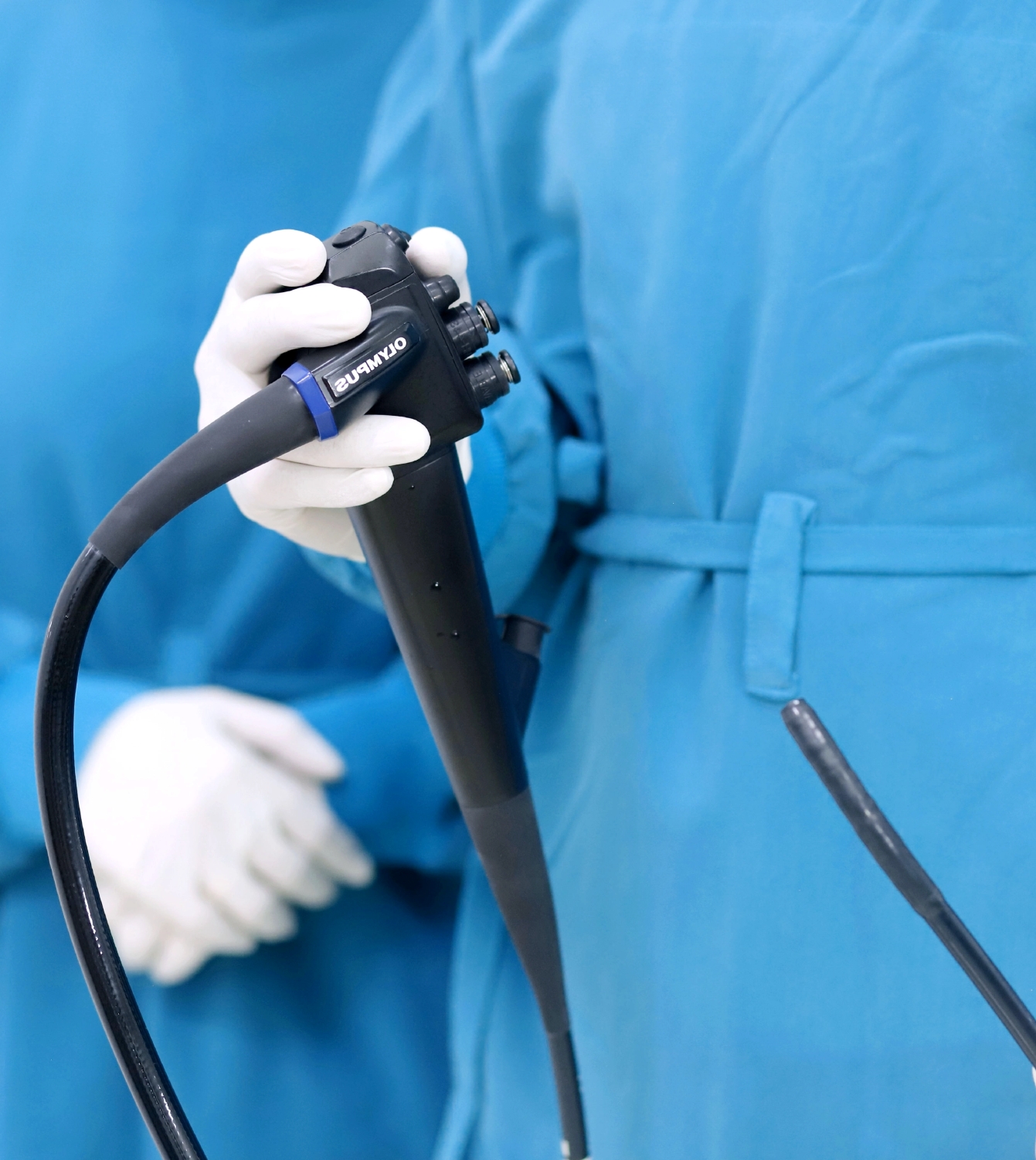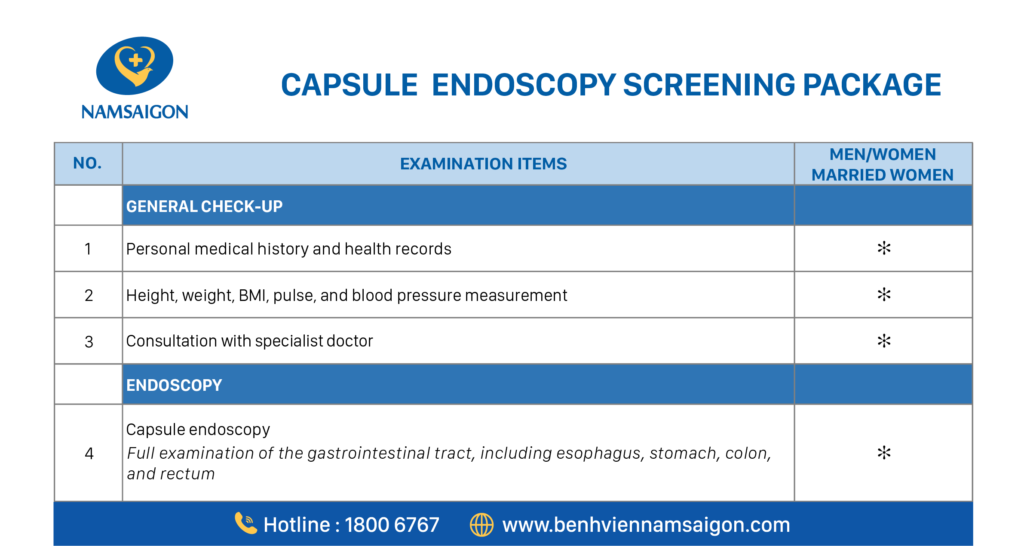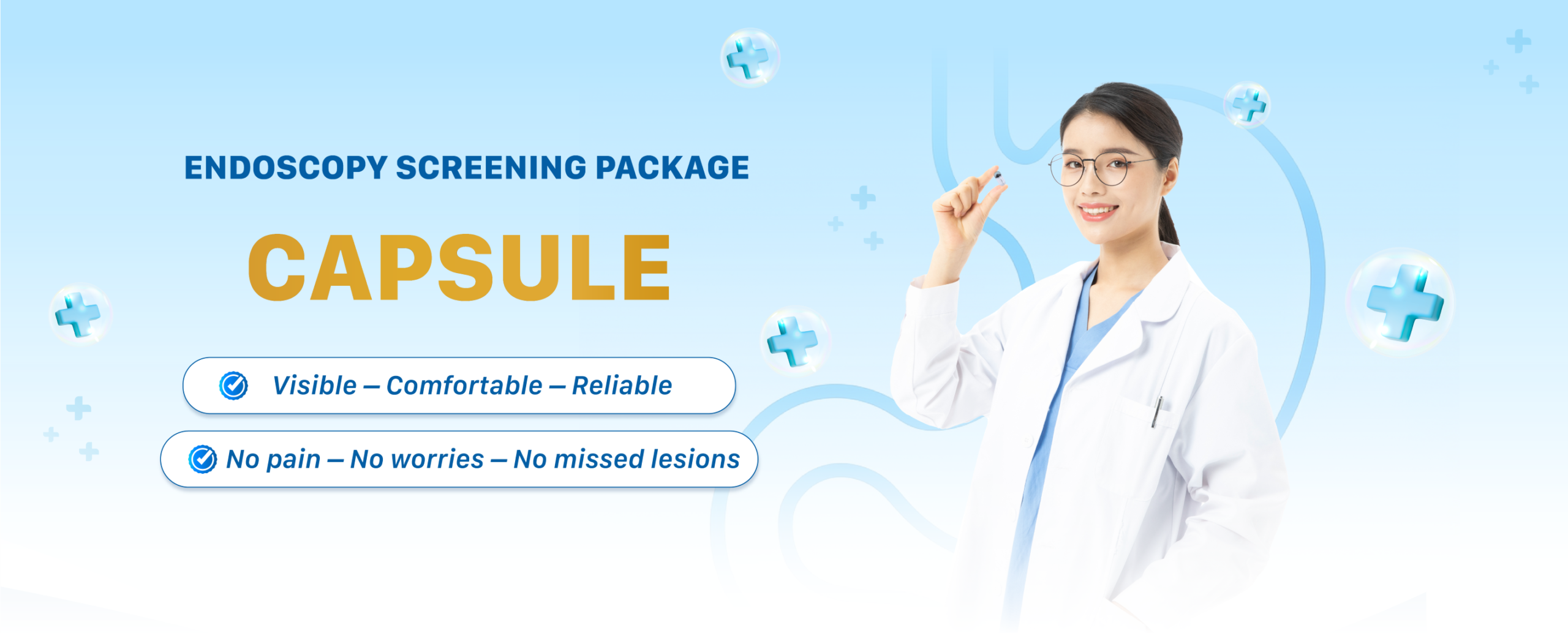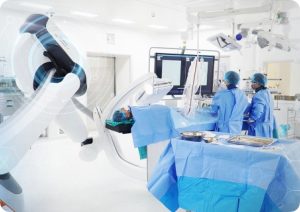The “golden” choice in gastrointestinal cancer screening
CAPSULE ENDOSCOPY AT NAM SAI GON INTERNATIONAL GENERAL HOSPITAL
Capsule endoscopy: A gentle solution for in-depth gastrointestinal diagnosis
1. Painless and comfortable
Unlike conventional endoscopy, which involves inserting a scope through the mouth or rectum, capsule endoscopy requires only swallowing a small capsule with an integrated camera. This method causes no pain and does not trigger nausea or discomfort.
2. No sedation, no hospitalization
The procedure is performed while the patient is fully awake and requires no anesthesia. After swallowing the capsule, patients can go about their day normally and are typically discharged the same day.
3. Full small intestine examination – overcoming the blind spots of traditional endoscopy
Capsule endoscopy is currently the only method capable of examining nearly the entire small intestine — the longest part of the digestive tract. It allows early detection of small lesions, polyps, or hidden bleeding that conventional methods may miss.
Still unsure which endoscopy method is right for you? Call our Hotline at 1800 6767 (press 2) for personalized consultation and support.
What is capsule endoscopy? Should you consider it?
Capsule endoscopy is a modern diagnostic technique that allows for a full visual examination of the small intestine — an area that traditional endoscopy cannot effectively reach.
The patient swallows a small capsule containing a miniature camera, which captures images of the intestinal lining as it travels through the digestive tract. These images are transmitted to an external recording device worn by the patient.
This method is painless, non-invasive, and requires no anesthesia, making it ideal for individuals who are afraid of conventional endoscopy, as well as for the elderly or patients with complex underlying health conditions. It is especially beneficial in cases such as:
- Unexplained gastrointestinal bleeding
- Suspected polyps, ulcers, or tumors in the small intestine
If you are experiencing digestive symptoms but are hesitant about traditional endoscopy, capsule endoscopy could be the gentle solution you’re looking for.
When should you consider capsule endoscopy?
Capsule endoscopy is typically recommended in the following cases:
- Unexplained gastrointestinal bleeding
- Suspected polyps, tumors, or cancer in the small intestine
- Persistent abdominal pain or chronic diarrhea with no clear cause
- Previous gastroscopy or colonoscopy found no abnormalities
- Monitoring the progression of small bowel conditions such as inflammation, ulcers, or Crohn’s disease
Who should consider capsule endoscopy?
This technique is especially suitable for:
- Individuals who are afraid of conventional endoscopy
- Older adults or people with chronic underlying health conditions
- Children or patients who cannot tolerate anesthesia
- Those who need a small intestine examination but cannot undergo flexible endoscopy
- Patients who require ongoing monitoring while minimizing invasive procedures
Who should NOT consider capsule endoscopy?
Capsule endoscopy is not recommended for individuals who:
- Are suspected of having intestinal narrowing or bowel obstruction
- Have a history of complex gastrointestinal surgery
- Suffer from gastrointestinal motility disorders

 Leading Experts
Leading Experts International Quality
International Quality Advanced Technology
Advanced Technology Research & Innovation
Research & Innovation
Our Strengths
Why choose Nam Sai Gon International General Hospital?

19+
Specialties-
Leading Experts
Bring together a team of leading specialists, doctors and pharmacists, nurses and medical staff with high expertise, strong professional skills, dedication and professionalism. -
Advanced Technology
The hospital regularly updates and applies advanced methods in diagnosis and treatment, with strict adherence to professional examination and treatment procedures. -
Modern Infrastructure & Equipment
The hospital continuously invests in modern infrastructure and advanced medical equipment, with the mission of providing the ideal choice for healthcare and treatment at a reasonable cost for patients.
Take Charge of Your Health
Clear Process, Comprehensive Check-Up List
Package Inclusions
Examination Process

Step 1: Book your appointment
You can schedule your health check-up at the hospital through the following channels:
- Call the hotline: 1800 6767 (press 2 – Appointment booking & service consultation)
- Fill out the registration form below
- Book via our Fanpage: Nam Sai Gon International General Hospital
- Book via our Zalo OA: Nam Sai Gon International General Hospital
Step 2: Arrive at the hospital on time
- Bring necessary documents (ID/passport, health insurance, etc.). If you are verified at Level 2, you can use the VNeID app instead of your ID card.
- Provide your booking information to our customer service staff.
Step 3: Clinical and paraclinical examination
The doctor will conduct a general health check-up. Based on your package, they will prescribe the necessary tests and diagnostic imaging.
Step 4: Receive results and consultation
The doctor will explain your test results in detail and provide appropriate health advice or a treatment plan if needed.
Expert care you can trust
Highly Qualified
Deeply Experienced
Facilities & Modern Equipment System
Nam Sai Gon International General Hospital is equipped with a full range of synchronized, state-of-the-art medical systems and equipment, meeting all diagnostic and treatment needs according to international standards. Specialist clinics are arranged separately to ensure medical expertise and patient privacy. The digitalized examination process helps reduce waiting time, streamline medical record management, and enhance the overall experience with safe, high-quality, and comprehensive care.
Real Stories, Real People, Genuine Care
What do our patients say about Nam Sai Gon International General Hospital?
Community Trust, Media Spotlight
What does the media say about Nam Sai Gon International General Hospital?
Register for medical examination package
Capsule Endoscopy
FAQs
1. What are the working hours at Nam Sai Gon International General Hospital?
- Monday to Saturday: Morning 7:00 AM – 12:00 PM | Afternoon 1:30 PM – 5:00 PM.
- Emergency and inpatient services: Available 24/7, including Sundays and public holidays.
2. Is the capsule endoscopy package covered by public health insurance?
Currently, the capsule endoscopy package at Nam Sai Gon International General Hospital is not covered by Vietnam’s public health insurance or private insurance plans.
However, for other medical needs, patients may still benefit from public insurance under the nationwide referral policy, as well as direct billing services from 21 partnered private insurers for eligible services.
3. How long does it take to receive capsule endoscopy results?
The capsule typically takes 8 – 12 hours to pass through the entire digestive tract. During this time, patients can continue their daily activities under medical guidance. The capsule continuously transmits images to an external recorder worn on the body.
After sufficient data is collected, a gastroenterologist will download and analyze thousands of images. Depending on case complexity, results are usually available within 1 to 3 days.
4. Are there any risks associated with capsule endoscopy?
Capsule endoscopy is a modern, non-invasive procedure considered very safe, with a very low complication rate. It is conducted under sterile conditions and closely monitored by medical professionals.
However, it is not recommended for certain individuals, including:
- Those with a history of bowel obstruction or gastrointestinal narrowing
- Patients who have undergone complex gastrointestinal surgeries
- Individuals with swallowing difficulties
- Pregnant women or those with a pacemaker
The capsule is swallowed with water to aid intake. If any abdominal pain, nausea, or discomfort occurs, the patient should inform medical staff immediately for prompt evaluation and care.
5. Can capsule endoscopy detect cancer?
While capsule endoscopy does not allow for biopsy, it can detect suspicious signs of cancer, such as polyps, small tumors, ulcers, abnormal bleeding, or mucosal lesions in the small intestine — an area difficult to examine with traditional flexible endoscopy.
Based on captured images, doctors can assess risk and recommend additional diagnostic methods (e.g., interventional endoscopy, biopsy). Therefore, capsule endoscopy is an effective early screening tool, but it does not replace other advanced cancer diagnostic techniques for the digestive tract.














